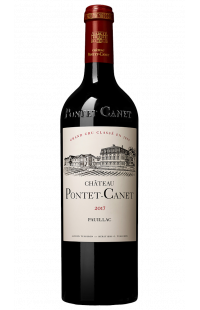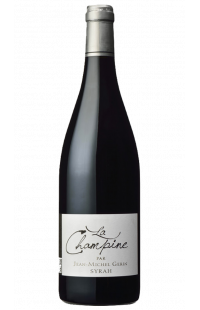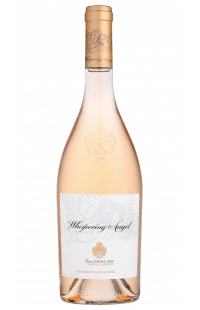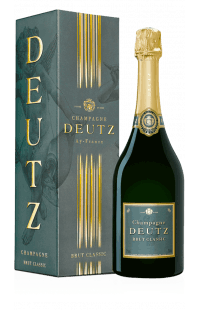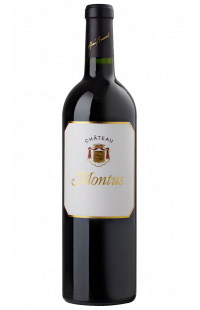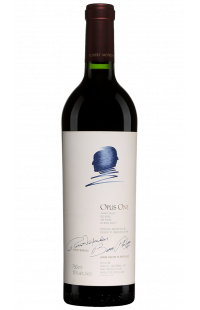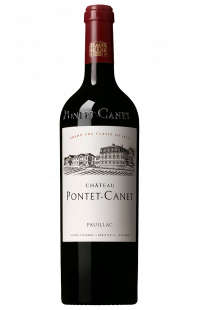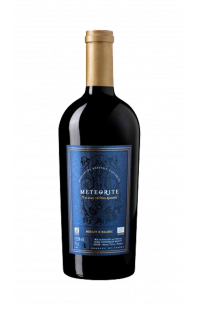- Menu
- All our wines
- Bordeaux
-
Rhône
-
Burgundy
-
Rosés Wines
-
Champagne
- France
-
World
- PRIMEURS
- ORGANIC WINES
Vignobles Daniel Mouty
Daniel Mouty Vineyards: History, Wines, and Commitment to Excellence
The Daniel Mouty Vineyards embody a family passion for the art of viticulture, rooted in one of France's most prestigious terroirs. Since 1923, this family has strived to produce high-quality wines while respecting traditions and integrating modern and innovative techniques. The estate is established in several renowned appellations, notably Saint-Émilion, Bordeaux, and Pomerol, with a varied production that showcases the diversity and richness of these exceptional terroirs. For several generations, the Mouty family has developed and transformed the estate, with a particular focus on organic and sustainable agriculture since 2016.
In this article, we will delve into the vineyards' history, the different cultivated appellations, the winemaking techniques, and the current management by Sabine and Bertrand Mouty. We will also see how the commitment to organic agriculture is transforming the estate's vision and how visitors can discover this passion through tastings and unique stays in the heart of the vineyards.
The History of Daniel Mouty Vineyards: A Family Adventure Since 1923
The Beginnings with Donat Mouty
The story of the Daniel Mouty Vineyards begins in 1923 when Donat Mouty, passionate about oenology, takes over the management of Château Barry in Saint-Émilion. This region, renowned for its exceptional wines, was already well-known worldwide, and Donat saw an opportunity to develop wines that reflect the richness of the local terroir. At that time, viticulture was still largely artisanal, and Donat implemented traditional winemaking practices based on respect for nature and the soil.
His approach, centered on quality and terroir expression, laid the solid foundations on which the estate would develop for nearly a century. Donat Mouty established a close relationship with the land by adopting a meticulous approach to vine management and the fermentation process, essential for producing balanced wines rich in aromas.
Expansion Under Noël Mouty
After Donat, his son Noël Mouty took over and continued his father's work. Noël improved the estate by introducing new cultivation and winemaking techniques. He strengthened Château Barry's reputation through better vineyard management and increased attention to every production stage. The expansion under Noël marked the beginning of a prosperous period for the estate, with wines distinguished by their elegance and finesse.
Noël Mouty also modernized certain aspects of production while preserving the traditional winemaking methods that were the strength of Château Barry. This combination of tradition and modernity would become a signature of the Daniel Mouty Vineyards.
The Era of Daniel and Françoise Mouty: Towards Complete Modernization
Daniel and Françoise Mouty: A Vision of Modernity
In 1973, Daniel Mouty and his wife Françoise took over the family estate. With their arrival, the estate underwent a true transformation. They focused on modernizing winemaking methods while preserving the identity of Château Barry and the traditional techniques inherited from previous generations. Daniel and Françoise brought a resolutely modern vision to vineyard management, integrating innovative technologies into the winemaking process to better control wine quality, from harvest to bottling.
Their approach emphasized innovation while respecting the fundamental principles of traditional viticulture. They adopted modern equipment such as stainless steel tanks to optimize fermentation temperature control, allowing better mastery of aromas and wine structure. This modernization not only improved wine quality but also opened new perspectives for the estate's development.
Acquisition of Château Tour Renaissance and Château Rambaud
In 1982, the family estate expanded with the acquisition of Château Tour Renaissance, a property owned by Françoise Mouty's family. This acquisition allowed the Daniel Mouty Vineyards to diversify their production by integrating a new range of wines from the Bordeaux appellation. It was during this time that Château Rambaud came into being, with its flagship wine Extrait de Rambaud, an elegant Bordeaux recognized for its structure and finesse.
Developing this new range enabled Daniel Mouty to position himself not only in prestigious appellations like Saint-Émilion but also to diversify his offerings with more accessible Bordeaux wines while maintaining high-quality standards. Château Rambaud quickly became a flagship wine of the Daniel Mouty Vineyards, appreciated for its excellent value for money.
Expansion into Pomerol: Château Grand Beauséjour and Cuvée Saint-André
Acquisition of Vineyards in Pomerol
In the 1980s, the Daniel Mouty Vineyards continued their expansion by acquiring two properties in the prestigious Pomerol appellation. These acquisitions marked a new era for the estate, as Pomerol is globally recognized for the exceptional quality of its red wines, often among the most sought-after and expensive in the world. This appellation is distinguished by clay-rich soils, ideal for the Merlot grape variety, which imparts great elegance and remarkable depth to Pomerol wines.
Château Grand Beauséjour
Among the vineyards acquired in Pomerol, Château Grand Beauséjour is perhaps the most emblematic. This estate produces highly complex wines, combining power and finesse. Pomerol's clay soil allows the Merlot grape to fully express itself, offering rich, velvety, and intense wines with aromas of dark fruits, truffle, and a silky tannic structure.
Château Grand Beauséjour quickly became one of the jewels of the Daniel Mouty Vineyards, with wines distinguished by their aging potential, revealing increasingly complex flavors over the years. These wines appeal to both enthusiasts and collectors due to their depth and unique character.
Cuvée Saint-André
Complementing Château Grand Beauséjour, Cuvée Saint-André is another production from the Pomerol appellation. This wine stands out for its elegance and finesse while retaining the structure and power characteristic of Pomerol wines. With notes of ripe fruits, spices, and a long finish, Cuvée Saint-André represents the perfect alliance between tradition and innovation, reflecting the unique expertise of the Daniel Mouty Vineyards.
The New Generation: Sabine and Bertrand Mouty at the Helm
A New Family Leadership
Today, the Daniel Mouty Vineyards are managed by Sabine and Bertrand Mouty, the children of Daniel and Françoise. This new generation, while remaining faithful to the family heritage, has brought innovative ideas for the estate's development. Sabine and Bertrand have successfully combined tradition and modernity by introducing sustainable practices and opening new horizons for the estate.
Opening of the Guesthouse and Bed & Breakfast at Domaine des Grands Ormes
One of Sabine and Bertrand's major initiatives is the opening of a guesthouse and bed & breakfast at the Domaine des Grands Ormes. This project was born from their desire to share their passion for wine and the terroir with visitors. Located in the heart of the vineyards, this accommodation offers a total immersion into the viticultural world of the Daniel Mouty Vineyards. Visitors can discover the secrets of winemaking, participate in exclusive tastings, and enjoy the estate's exceptional natural setting.
This project also allowed the estate to diversify its activities by attracting a broader audience eager to experience a unique and authentic stay in the heart of the Bordeaux region.
Creation of "Nouvelle Terre," a 100% Chardonnay Wine
Under Sabine and Bertrand's impetus, the estate also diversified by launching the Nouvelle Terre project, a 100% Chardonnay white wine—a rarity in the Bordeaux region, traditionally known for its red wines. This bold initiative reflects the new generation's desire to push the boundaries of local viticultural tradition and explore new production opportunities.
Chardonnay is a grape variety known worldwide for its elegant and refreshing white wines, and its introduction into the Daniel Mouty Vineyards' portfolio demonstrates the estate's ability to adapt to modern consumers' tastes and expectations. Nouvelle Terre quickly became a wine appreciated for its freshness, balance, and aromatic complexity.
Transition to Organic Agriculture
Conversion to Organic Label
In 2016, the Daniel Mouty Vineyards made a bold choice by initiating their transition to organic agriculture. This change marks a desire to preserve the environment, ensure better soil quality, and produce more authentic wines respectful of nature. Conversion to organic agriculture requires a strong commitment, involving the abandonment of synthetic chemicals and the implementation of practices respectful of the ecosystem.
This decision, which responds to growing consumer demand for wines produced from sustainable practices, perfectly aligns with the Daniel Mouty Vineyards' tradition of excellence and quality. The conversion to organic has allowed the estate to strengthen its identity while addressing current environmental challenges.
Benefits for the Vine and Wine
Organic viticulture has many advantages for the vine and the wine. By reducing chemical use, biodiversity is preserved, and soils regain their natural balance. This results in more resilient vines, better terroir expression, and purer wines without pesticide residues.
The Daniel Mouty Vineyards have observed that conversion to organic agriculture allows producing wines with a more pronounced identity, where the grape variety and terroir expression are more prominent. This has enhanced the estate's reputation as a producer committed to quality and sustainability.
The Wines of Daniel Mouty Vineyards: A Wealth of Appellations and Flavors
Saint-Émilion Wines
The Saint-Émilion wines produced by the Daniel Mouty Vineyards result from meticulous expertise and an exceptional terroir. Mainly from grape varieties like Merlot and Cabernet Franc, these wines are renowned for their aromatic richness, with notes of red fruits, plum, and an elegant tannic structure that gives them excellent aging potential.
Château Barry is undoubtedly one of the gems of this range—a wine that combines complexity, finesse, and aging potential. This Saint-Émilion Grand Cru is regularly praised by critics for its depth and ability to evolve beautifully over time.
Bordeaux Wines
The Bordeaux appellation wines produced by the Daniel Mouty Vineyards, notably those from Château Rambaud, are accessible yet high-quality wines. These wines are ideal for more regular consumption while offering complexity and structure typical of great Bordeaux wines. Château Rambaud is both elegant and structured, with aromas of ripe red fruits, spices, and a full, velvety palate.
Bordeaux is a world-renowned wine region, and the appellation wines produced by the Daniel Mouty Vineyards perfectly reflect the classic style and elegance that have made this region famous. With excellent value for money, they represent a great opportunity for wine lovers to discover Bordeaux excellence.
Pomerol Wines
The Pomerol wines, particularly those from Château Grand Beauséjour and Cuvée Saint-André, are exceptional wines sought after for their concentration, depth, and elegance. These wines are mainly made from Merlot, a grape variety that finds its purest and most refined expression on Pomerol's clay soils. They are distinguished by complex aromas of dark fruits, truffle, and cocoa, with a silky texture and great aging potential.
The Pomerol wines of the Daniel Mouty Vineyards are regularly praised for their balance and length on the palate. They are among the estate's most prestigious wines, particularly appreciated by connoisseurs and collectors for their aging potential and unique character.
Visiting the Daniel Mouty Vineyards: An Unforgettable Experience
Tastings and Guided Tours
The Daniel Mouty Vineyards offer a unique experience for those wishing to discover the world of wine and immerse themselves in Bordeaux's viticultural culture. The estate offers guided tours through its vineyards, allowing visitors to discover the different stages of wine production, from vine to bottle. These tours also include tastings of the estate's wines, offering a rare opportunity to taste the diversity of appellations offered, notably Saint-Émilion, Bordeaux, and Pomerol wines.
Tours are often guided by members of the Mouty family, ensuring a personalized approach and direct sharing of the passion that has animated this family estate for several generations.
Staying at Domaine des Grands Ormes
For those wishing to extend the experience, the Domaine des Grands Ormes offers bed & breakfast accommodations and a guesthouse in the heart of the vineyards. This idyllic setting allows visitors to live a total immersion in the universe of the Daniel Mouty Vineyards. They can discover the beauty of the Bordeaux wine landscape while enjoying the comfort and hospitality offered by the Mouty family.
Staying at the estate also allows participation in exclusive tastings, exploring the vineyards in complete tranquility, and rejuvenating in an exceptional natural setting away from urban hustle. It's an ideal experience for wine enthusiasts and those seeking to discover the cultural and gastronomic richness of the Bordeaux region.
FAQ About the Daniel Mouty Vineyards
When did the history of the Daniel Mouty Vineyards begin? The history of the Daniel Mouty Vineyards began in 1923 when Donat Mouty took over the management of Château Barry in Saint-Émilion.
What are the main properties of the Daniel Mouty Vineyards? The main properties include Château Barry, Château Tour Renaissance, Château Rambaud, Château Grand Beauséjour, and the Cuvée Saint-André in Pomerol.
Who currently manages the Daniel Mouty Vineyards? Today, the vineyards are managed by Sabine and Bertrand Mouty, the children of Daniel and Françoise Mouty.
What are the main grape varieties cultivated in the vineyards? The main grape varieties are Merlot and Cabernet Franc for red wines and Chardonnay for the white wine "Nouvelle Terre."
Is the estate committed to organic agriculture? Yes, since 2016, the Daniel Mouty Vineyards have been converting to organic agriculture.
Can you visit the Daniel Mouty Vineyards? Yes, the Daniel Mouty Vineyards offer guided tours and tastings, as well as accommodations at Domaine des Grands Ormes.
Conclusion
The Daniel Mouty Vineyards are much more than just a winery. They represent the heritage of several generations of enthusiasts deeply attached to their terroir and the excellence of their wines. From Château Barry in Saint-Émilion to the prestigious vineyards of Pomerol, up to the recent commitment to organic agriculture, every stage of the Daniel Mouty Vineyards' history testifies to a constant desire for perfection and innovation.
Whether you are a lover of great vintages, passionate about winemaking, or a visitor seeking a unique experience, the Daniel Mouty Vineyards offer a total immersion into the fascinating universe of Bordeaux wine. By combining tradition and modernity, this family estate continues to produce exceptional wines while preserving the values and authenticity that have made their reputation.
